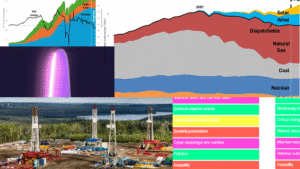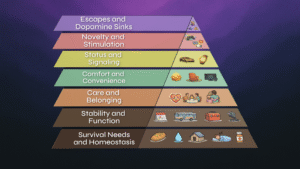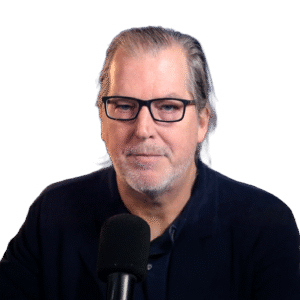Description
We were reminded this week of how precarious and dangerous the ongoing NATO/Russia situation is. An errant missile in Poland on Tuesday nearly started World War III (thankfully – cooler heads prevailed). The situation in Ukraine is horribly complex – but are people in the USA even paying attention? Many naively believe getting rid of Putin or ‘winning’ militarily vs Russia are valid and reasonable goals. But from a systems vantage there is more going on here than the mainstream narrative – we are in the liminal space between a unipolar and multipolar world order – a time fraught with various risks. Our collective understanding/response is vital to livable futures.
In French, we have a motto that says that a simple drawing is often better than a long explanation. Jean-Marc Jancovici Carbone 4 President
That’s very understandable because with left atmosphere thinking, one of the problems is that you see everything as a series of problems that must have solutions. Iain McGilchrist Neuroscientist and Philosopher
We can’t have hundreds and hundreds of real relationships that are healthy because that requires time and effort and full attention and awareness of being in real relationship and conversation with the other human. Nate Hagens Director of ISEOF
This is the crux of the whole problem. Individual parts of nature are more valuable than the biocomplexity of nature. Thomas Crowther Founder Restor
Show Notes & Links to Learn More
Previous Episode and Frankly on this topics: TGS Chuck Watson 1, TGS Chuck Watson 2, Frankly #2 with Chuck Watson
00:20 – Ukraine/Russia events
00:51 – Missiles landing in Poland
01:30 – What does a nuclear exchange mean
03:03 – Media’s villainization of Putin
03:45 – How the Soviet Union Collapse shaped current politicians and geopolitics
03:59 – The Harvard Boys
04:50 – Nuclear weapon stockpile in Russia
05:04 – Russia is the top exporter of wheat
05:07 – Russia is a top 3 oil producer and has a ton of natural resources with low population
05:37 – We were very close to nuclear war during the collapse of the soviet union
06:49 – Putin narrative of de-dollarization and imperialism of the west
06:57 – Trade agreements with the BRICS nations
07:26 – US dollar currently used to price oil
07:57 – Purchasing Power Parity
08:44 – Biden’s new proposal for Ukraine aid
09:11 – Eastern Oblasts of Ukraine
More:







